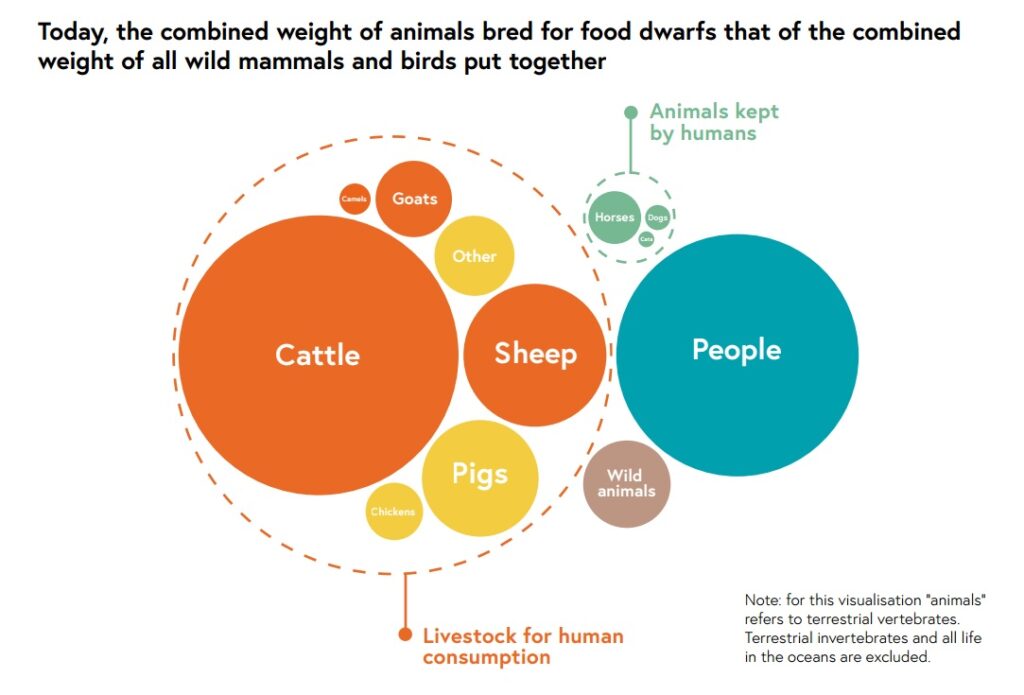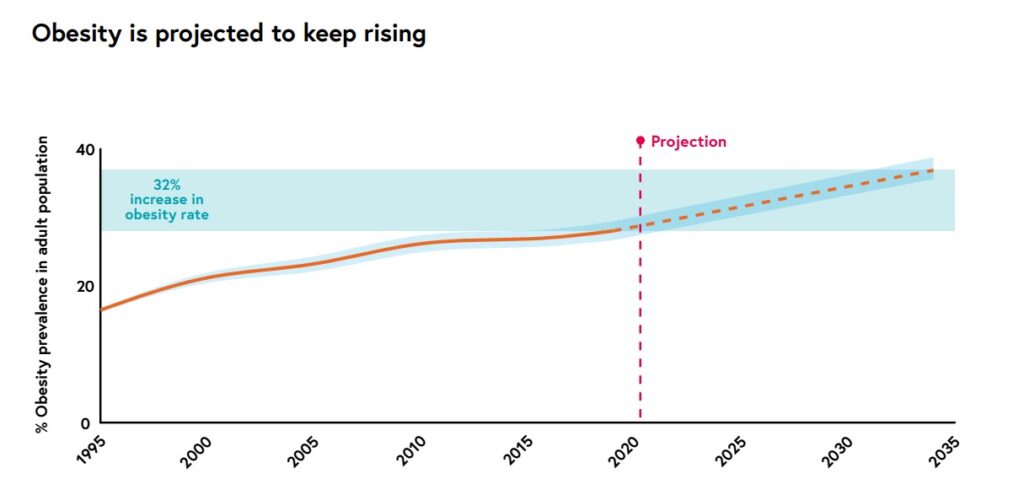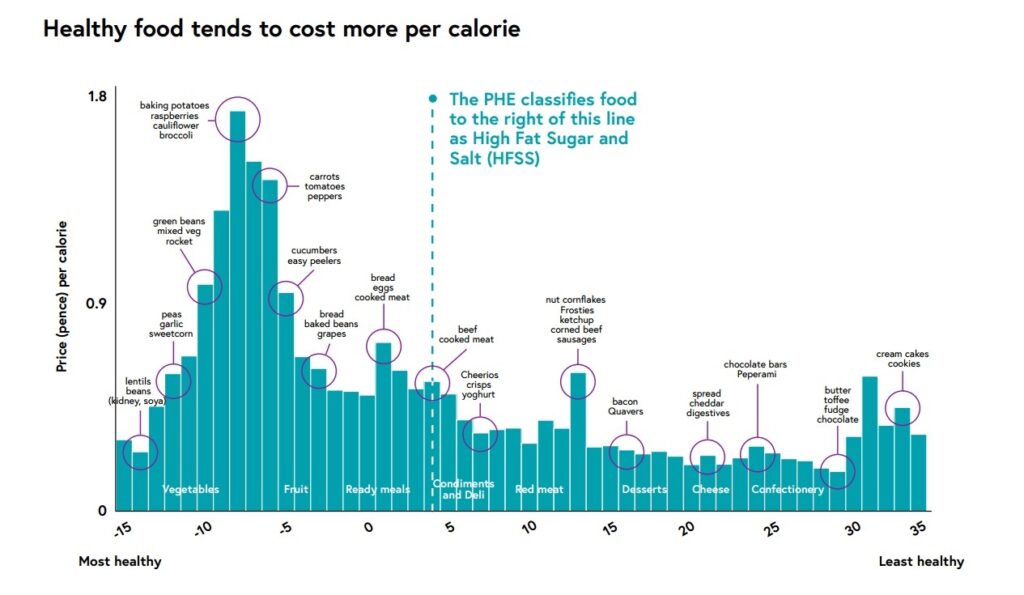UK’S NATIONAL FOOD STRATEGY PUSHES AGROECOLOGY INTO THE MAINSTREAM
The second part of the National Food Strategy (NFS), a UK government-commissioned independent review, was published in July. It is an important work that both food growers and manufacturers will need to digest as its influence is expected to be long-lasting. Organic farming and the concept of ‘working with nature’ through processes such as carbon sequestration for example, are important elements.
The NFS – developed in consultation with policymakers, the food and farming sectors, NGOs, citizens and the public sector – has reviewed how the UK food system works, the damage it may be doing to our bodies and to the ecosystem, and the interventions needed to prevent future harms.
“The food system we have now has evolved over many years. It won’t be easy to reshape it. But time is not on our side,” wrote lead author and co-founder of Leon Restaurants and the Sustainable Restaurant Association, Henry Dimbleby.
“The effects of climate change are already becoming apparent around the world. Diet-related disease is putting an intolerable strain on our nation’s health and finances – and Covid-19 has increased the pressure,” he added.
The Soil Association, which promotes organic food production and is also the UK’s largest organic certification body, has largely welcomed the second part of the National Food Strategy. CEO Helen Browning, who had input into the study, commented: “There is much to welcome in the strategy and I’m proud that the practical and policy work we have been doing at the Soil Association has had significant influence.”
A food strategy based on agroecology
The association is particularly pleased that there is strong support for agroecological production (farming in a way that supports both nature and biodiversity), and nature-friendly practices such as agroforestry, improving soil organic matter, and regenerating on-farm biodiversity. “Organic farmers have spearheaded a nature-friendly approach for decades, and it is heartening to see the National Food Strategy call for agroecology to enter the mainstream,” said Browning.

Recommendations related to food served in places like schools and hospitals are considered crucial in order to deliver healthier and more sustainable menus encompassing higher welfare meat, while also educating the next generation about where their food comes from. The Soil Association’s Food for Life project is named as the model to emulate.
Among the many other elements and/or facts that the NFS highlight include:
- some 80% of processed food sold in the UK is unhealthy
- the UK is now the third-fattest country in the G7, with almost three in ten of the adult population now officially obese
- the threat of antimicrobial resistance associated with intensive animal farming
- calls for greater investment in farmer-led innovation
- more local and organic produce to be made available in schools.
The threat of processed food
The National Food Strategy describes a vicious circle it calls the Junk Food Cycle – something that both consumer and food companies are both trapped in. Of the manufactured food products sold in the UK, 85% are deemed so unhealthy they are unsuitable for marketing to children, the report says. In 2018, the home-grown fruit and vegetables market in the UK was worth £2.2 billion, whereas confectionery alone – a small fraction of the processed foods market – was worth £4.2 billion.
Meanwhile, according to market research consultancy Kantar, the online food deliveries market – which has boomed since the pandemic – is heading down the same route, with pizza included in a third of all online orders.

The Soil Association believes a shift away from ultra-processed foods is needed. Browning said: “Proposed taxes on salt and sugar are hugely important and should be enacted by the government, but we would urge further action targeting ultra-processed foods. In France, the government has introduced a percentage reduction target for ultra-processed foods in the diet, and we should be aiming for a similar target.”
The association’s head of food policy, Rob Percival added that reformulation was not enough. He told the British Medical Journal in July: “Infants consuming too many ultra-processed baby foods are denied the flavours and textures of fresh produce—crucial to the development of a mature palate and healthy eating behaviours.”
Meat and dairy under fire
The National Food Strategy covers meat production in some detail and provides data that suggest protein derived from meats like beef and lamb tend to be much more carbon heavy. However greenhouse gas emissions for bovine meat vary considerably by country. Paraguay emits over 200kg of carbon per kg of meat while Denmark emits under 15kg. Clearing forests to create pasture is one reason for massively increased emissions.
Browning said: “We will need to eat much less industrially-farmed and grain-fed meat, which can drive deforestation and land use change through its reliance on imported feed crops. The National Food Strategy recommends a wider uptake of agroecology which would see livestock, and particularly ruminants, reintroduced into rotations and playing an important role revitalising soils and biodiversity.”
The UK government said that it will respond, through a White Paper, to the findings of the National Food Strategy within six months. To download the NFS recommendations in full click here.

Join us at SIAL Paris as exhibitor Join us at SIAL Paris as visitor
